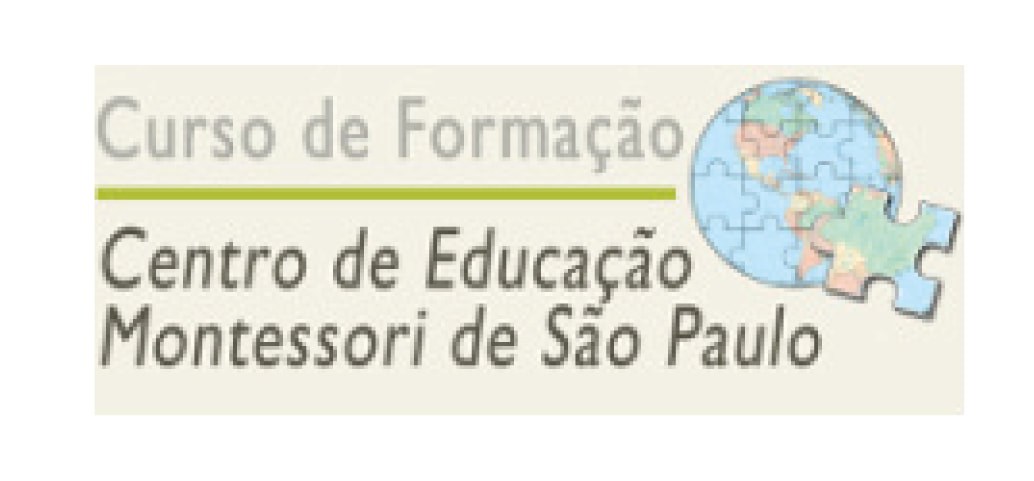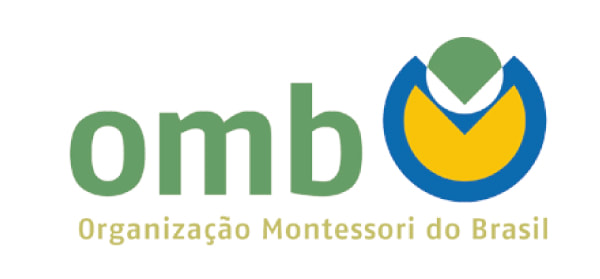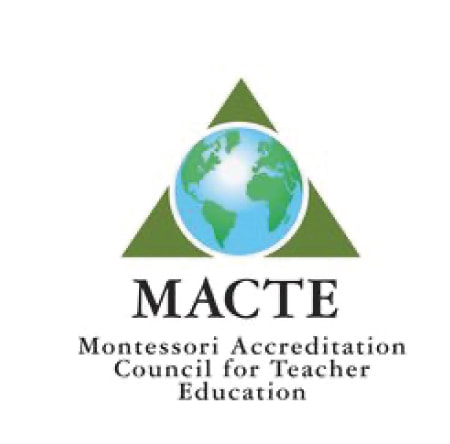Training Course in Montessori Teacher Education and Child Development
Notice
The next course will begin in July 2021. Registration opened on January 30, 2021 and is now closed. For more details regarding the admissions process, please see the Student Manual on this site.
Information regarding the students' investment in the course will be found on the page "Investment."
Our Vision:
... to provide an innovative training course that transforms the professional vision and perspective of educators on how children learn.
Our Mission:
CEMSP views the training of early childhood teachers as a professional responsibility. Our goal is to offer a specialized training for teachers, focused on human development and learning for the early childhood years. We view Montessori philosophy and methodology as the path to this end. The priority focus of our work is the formation of teachers who are educated in human development, reflective in their own practice and who have in-depth knowledge of Montessori philosophy and practice.
In Sao Paulo: 011-9977-9611
In Campinas: 019-9111-1483
Target Audience
Teachers trained in Early Childhood Education or Elementary Education; teachers and coordinators in general.
General Structure of the Course:
Dates for course beginning 2019:
1-13 July 2019
6-18 January 2020
6-18 july 2020 (postponed to 4 - 16 January 2021)
Fees per module: See in menu under "investment".
Phase 1 - 100 hours, Monday to Saturday from 8h to 18h
12 hours of class observation and reflection on classroom
44 hours of lectures: child development, learning theories, Montessori philosophy, history of
early childhood education, observation techniques in the classroom
34 hours of technical curriculum: practical life, sensorial education, artes
10 hours of practical work with teaching materials
Phase 2 - 100 hours, Monday to Saturday from 8h to 18h
12 hours of class observation and reflection on classroom
24 hours of lectures, class management, self-awareness
6 hours of technical curriculum: music education
48 hours of technical curriculum: language and mathematics
10 hours of practical work with teaching materials
Phase 3 - 100 hours, Monday to Saturday from 8h to 18h
12 hours of class observation and reflection on classroom
25 hours of classroom instruction, Montessori philosophy, stages of development,
class management, self awareness
53 hours of technical curriculum: history, geography, science and motor development
10 hours of practical work with teaching materials
Teachers / Lecturers
Coordinators:
Paige Geiger, American, living in Brazil since 1975, Masters in Education from Boston State College; Bachelor’s in Education from Pennsylvania State University, USA: Montessori Diploma in early childhood education (three to six years) Meca Seton, Chicago, USA; former director of Early Childhood Education and Elementary Education at the Graded School of São Paulo from 1995 to 2012.
Marion Alice Wallis, Ed.D., English, living in Brazil since 1971, PhD in Education, Boston University, USA; Master of Education, Michigan State University, USA; Bachelor of Education, University of London, England; Montessori Diploma in early childhood education (three to six years) Meca-Seton, Chicago, United States.
Instructors:
Leonie Coppelmans-Eussen, Dutch, living in Brazil since 1984, undergraduate education, Unicamp, Campinas, Brazil; post-graduate degree in financial administration, Cambury College, Goiania, Brazil, Masters in Education, University of Alabama, United States; Montessori Diploma in early childhood
education (three to six years), Centro de Estudios de Educación, Mexico. Leonie is the coordinator of the Program of ELL (English Language Learners) at the American School of Campinas in Brazil. Leonie served in the training of kindergarten teachers in the development of the senses in the Douglas Andriani Foundation, Campinas and was responsible for preparing the Foundation’s Education Cooperative. Leonie also maintains the College of St. Thomas
Cristiane Almeida, Brazilian, living in Sao Paulo and teacher of fine arts in early childhood and elementary, currently at the Graded School of Sao Paulo; undergraduate degree in Fine Arts and Artistic Education at the Foundation Armando Alvares Penteado; Montessori Diploma in early childhood education (3-6 years) by Meca Seton, Chicago, United States.
Additional Instructors in Phase 2:
Valéria de Almeida Laura, Brazilian, resident in Campinas, S.P. Educational Coordinator at the Escola Montessori de Campinas; bachelor's degree in education.
Olga Molina, Brazilian, living in São Paulo and music teacher in early childhood and elementary division at the Escola Graduada de São Paulo desde 1994. Specialist in the Kodaly Method by the Danube Bend Summer University de Esztergom (Hungria) and in Musicoterapia at the Faculdades Metropolitanas Unidas, SP. Notably, as well, in her training are course on the Willems Method with Jacques, Orff Schulwerk with Verena Maschat, Music for Babies with Wakquiria Passos Claro e Josette Feres (Brasil) e Musical Training for Children with Martine Barret (França). Olga studied musical perception at the Conservatório Brooklin Paulista. Her undergraduate training is in Languages (Portuguese/English) at PUC-SP and was trained in piano at the Conservatório Musical Paulistano. Olga is director of the Conservatório Musical Mozart (São Paulo) where she serves as coordenator of the training courses for teachers of music. Olga is a collaborating author of the text "Música na Escola"(MEC, 2012)
Additional Instructors in Phase 3
Gisela Maldonado, Brazilian, resident in São Paulo, physical education teacher at Escola Graduada de São Paulo.
Camila Guimarães, Brazilian, resident in Campinas, SP, director Escola Montessori de Campinas, undergraduate in education, University of Campinas, AMS Early Childhood credential from Meca Seton, Chicago, USA.
Internship:
During the course, or immediately following, the student completes an internship of 240 hours within a Montessori classroom approved by the course administrators. A journal of observations will be delivered monthly during the course of the internship. An additional 160 hours is required which may include continued internship and/or observation in Montessori classrooms.
Other assignments required:
Reading, reflection, observation of schools, construction of materials and the production of albums of practice is done during training periods. There will be a culminating thesis focused on the development of a particular child. Evaluations during the course will be made and a final evaluation at the end of studies. The student has up to two years after the start of the course to complete all course requirements and receive a certificate of completion. Extended time may be granted at the discretion of the administrators of the course.
Certificate:
Following participation in the course, internship and work completed, the student will receive a certificate of Montessori training recognized by the Montessori Organization of Brazil (OMB). See more: omb.org.br.
With all work complete the student is also eligible for certification by MACTE (Montessori Accrediting Council for Teacher Education) an organization recognized by the US Department of Education. See more at: www.macte.org.
Without the internship the student will receive a certificate of participation for the academic phase of the course. To obtain a certificate of course completion requires 90% attendance of class hours.
Admissions Requirements
CEMSP’s objectives are to provide a training program that focuses on the improvement of educational practice for Montessori teachers and teachers in general, who wish to enhance their practice in Early Childhood education.
Requirements for application to this early childhood training program are:
The student is required to have completed a university degree, preferably in pedagogy.
The student is required to provide two contact numbers for reference.
The candidate will be interviewed by the directors of CEMSP.
Selection of candidates will be made by the course administration based on the information provided.
Should the candidate not meet one or more of the published admission requirements, a letter of intent written by the candidate, an interview by the course directors, references from the referees and documented experience will be the decisive factors to determine enrollment.
Please refer to the registration form on this site. English version available.
CEMSP is an organization with non-discriminatory opportunities. CEMSP does not discriminate based on race, color, religion, national origin, sex, age or disability in admission, employment or access to its programs and activities.


